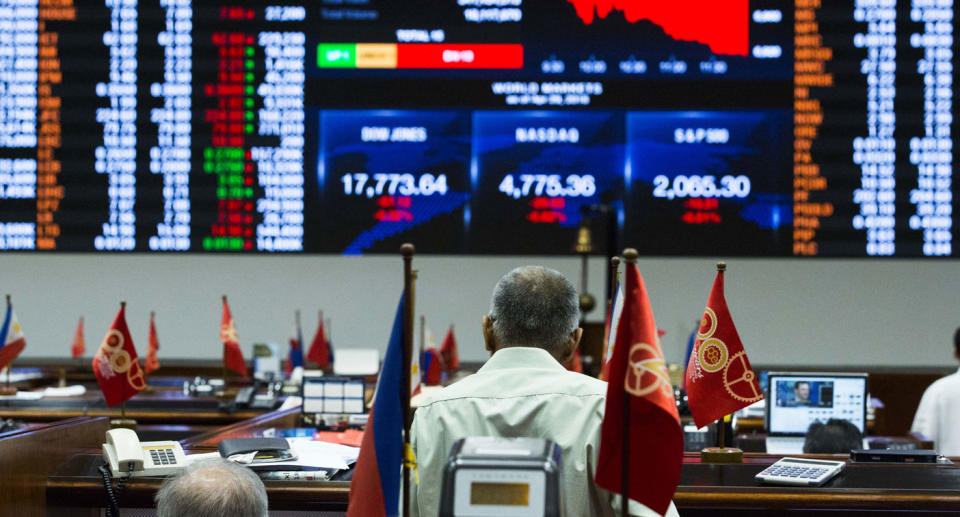Analyst Who Called Philippine Stock Rout Sees More Pain Ahead

By Ian Sayson
For the world’s most unloved stock market, things could get worse before they get better.
That’s the message from Manny Cruz, who in January called for a 5 to 10 percent “deep correction” in the Philippine benchmark index on “stretched” valuations. Now the Asiasec Equities Inc. analyst — with over 20 years experience covering the local stock market — says first-quarter earnings season is the next risk for equities and the turbulence that wiped out over $30 billion in market value so far this year could escalate further. The gauge has lost 16 percent since his Jan. 26 warning.
“We will see another round of selling if earnings aren’t as impressive as what some investors are still expecting,” said Cruz, adding that as companies release results the benchmark index could test the 7,400 level or 2.6 percent below Tuesday’s close.
First-quarter earnings matter more than usual this year as the numbers will give investors an initial gauge of the impact of President Rodrigo Duterte’s tax reform on consumption goods. The changes pose a risk to earnings as while personal income taxes were cut, levies were raised on fuel, cars, tobacco, coal and sweetened beverages, creating short-term inflationary pressures.
A drop in earnings growth could spell more trouble for the Philippine Stock Exchange Index, the world’s worst performer with a loss of more than 11 percent this year. Since its January 29 peak, the gauge has tumbled as rising inflation, higher oil prices, Asia’s worst performing currency and the central bank’s reluctance to raise interest rates stoked a selloff that saw over $870 million in foreign fund withdrawals over the 12-week period.
First-quarter results won’t support the consensus estimate of 12 percent growth in full-year 2018 earnings as margins were squeezed, said Cruz. That trend will continue into the second quarter, when inflation peaks and the upward pressure on consumer prices caused by the government’s tax reform is fully felt, he said.
Cruz is wary of consumer stocks, citing competition and margin compression and sees the sector as “susceptible to a derating” because of high valuations. However, he’s bullish on bank earnings as strong lending growth and a drop in the cost of funding will aid profits as the central bank moves to lower reserve requirements.
Philippine equity valuations sank last week to around 16 times estimated 12-month forward earnings, the lowest since December 2016. While historically attractive, a rate increase by the central bank on May 10 is needed to provide a catalyst for stocks to move higher as it would ease concerns monetary authorities are behind the curve in containing inflation, according to Cruz.
The benchmark index could fall to 7,200 without a rate increase next month, more than 5 percent from Tuesday’s level, he said.
“Foreign selling could get prolonged just like in 2015 and 2016,” Cruz said. “And like in those times, the outflow will reverse because the fundamental story is still intact. First and second quarters may not be impressive but eventually the government’s infrastructure project and tourism growth will spill over into corporate earnings.”
To contact the reporter on this story: Ian Sayson in Manila at isayson@bloomberg.net
To contact the editors responsible for this story: Divya Balji at dbalji1@bloomberg.net; Cormac Mullen
© 2018 Bloomberg L.P

 Yahoo Finance
Yahoo Finance 